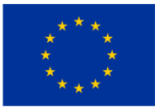Climate change, Development and Security in the Central Sahel
This online closed event with prominent stakeholders aims to present the main results emerging from the case study of the central Sahel (Mali, Niger and Burkina Faso) in the framework of the H2020 CASCADES project.
Performed activity
By-invitation online meeting with experts
CIDOB in collaboration with Adelphi and the European Centre for Development Policy Management, in the framework of the H2020 CASCADES project
The Sahel is among the regions most affected by the effects of climate change worldwide. A more or less direct link is often established between global warming and the unstable situation in the area. However, it is not easy to disentangle the role of climate change in relation to the high levels of food insecurity, the proliferation of violence and conflicts and their relationship with migration. This closed event with prominent stakeholders on these issues aims to present the main results emerging from the case study of the central Sahel (Mali, Niger and Burkina Faso) in the framework of the H2020 CASCADES project.
The research conducted examines the complex interaction between climate change, food security, conflict and mobility, highlighting key socio-political conditions in the region and how they could shape future vulnerability and resilience to the effects of global warming. In addition to reviewing the existing literature and analyzing publicly available data, this report presents the results from new research that includes expert interviews, a survey, and a scenario planning exercise with experts and stakeholders in the region, as well as a quantitative analysis of climate, socioeconomic and political data.
The research therefore aims to analyse the current dynamics around climate change and its effects with an eye to the future, with a view to improving the design and implementation of measures to address it. The event aims to present this new data and to invite a reflection in order to redefine public policies in the central Sahel at all levels.
This project has received funding from the European Union’s Horizon 2020 research and innovation programme under grant agreement No 821010.
